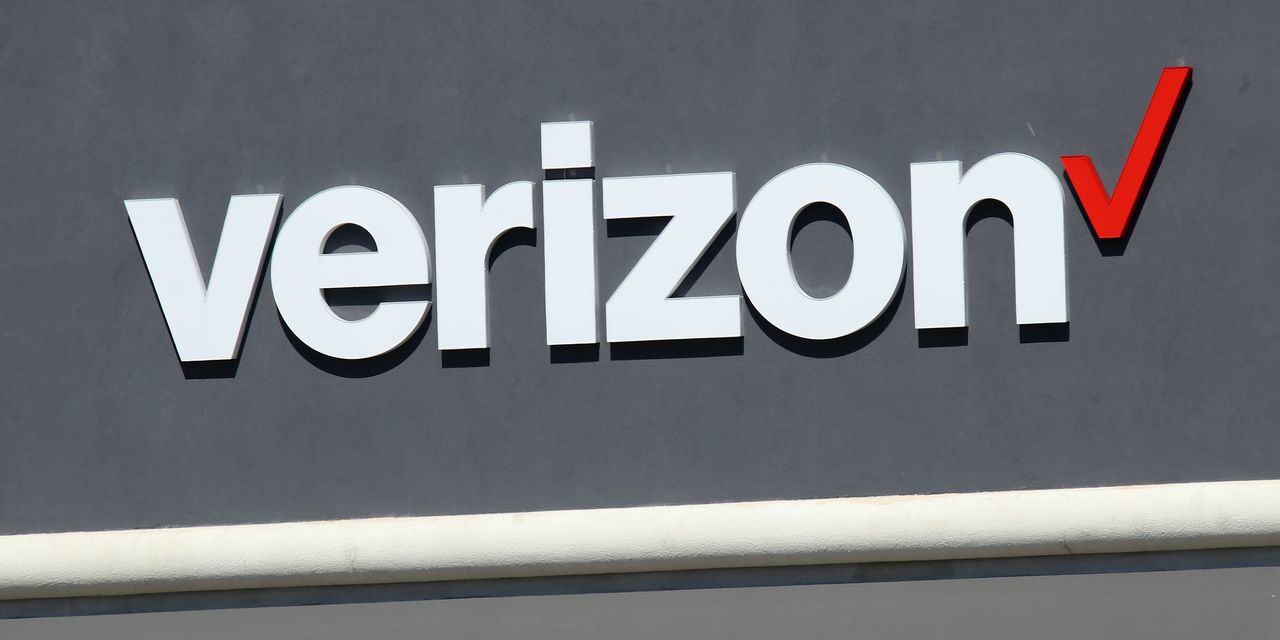As the Dow Jones Industrial Average logged its best October performance on record, all but two of its 30 components registered gains for the month.
The biggest loser was Verizon Communications Inc.
VZ,
which saw its stock fall 1.6% over the course of October even as the Dow
DJIA,
on the whole recorded a 13.95% gain, which was the index’s best monthly performance since January 1976.
Verizon’s monthly loss came as shares of its main peers fared far better: AT&T Inc.’s
T,
stock was ahead 19.0% for the month of October, while T-Mobile US Inc.’s
TMUS,
stock advanced 13.0%. All three companies posted results during the month of October, and Verizon notched its third straight quarter of subscriber losses in its retail postpaid phone business as its rivals saw better subscriber hauls.
See more: Why the Dow is having a killer month as it heads for best October ever
Verizon had warned investors ahead of time that it expected a “bubble” of churn thanks to recent price increases, and its management team projected better trends ahead. Still, some investors are concerned about Verizon’s growth prospects, especially considering that the company no longer seems to have the network advantage it once owned.
The Dow is on track for record October as Big Tech tanks: What’s next for stocks as investors await Fed clues
“It is now T-Mobile’s network that is best overall, at least in 5G,” MoffettNathanson’s Craig Moffett wrote after Verizon’s latest report. “In survey after survey, even in 4G Verizon’s perceived advantage is getting smaller. It’s hard to command a price premium when your product is perceived as second best. Or when your product is being sold by someone else (Cable) for less than you charge yourself.”
See more: Verizon says it’s ‘very challenging being the premium brand’ but that new efforts will pay off
Additionally, analysts seem to be warming to AT&T’s story given the company’s recent execution and its more simplified business structure.
“While AT&T has substantially outperformed Verizon recently, the resulting valuations that are now similar on 2023 expectations between AT&T and Verizon combined with AT&T’s opportunity to potentially grow revenue and EBITDA [earnings before interest, taxes, depreciation and amortization] faster in 2023 support our thesis for Buy-rated AT&T to continue to outperform Neutral-rated Verizon, especially since we believe Verizon may have a tough time growing wireless phone volumes in 2023,” Citi’s Michael Rollins wrote Monday.
See also: AT&T’s dividend yield falls below Verizon’s. What that means for the stocks.
Microsoft Corp.
MSFT,
shares also underwhelmed despite the Dow’s roaring October, with the stock’s 0.3% monthly decline suggesting cracks in Big Tech’s story.
While the tech giant has been able to cash in on the massive success of its Azure cloud-computing business in recent years, growth continued to slow in the latest quarter, and that trajectory could continue.
“The biggest issue is that this is the second quarter in a row that Azure revenue was disappointing relative to investor expectations, and the hope was that this would be a more durable growth engine through the macro headwinds,” MoffettNathanson’s Sterling Auty wrote in a note to clients following the company’s earnings report.
The name is a “show me story” for the next three months, according to Jordan Klein, a Mizuho desk-based analyst associated with the company’s sales team and not its research unit. The key question is whether the projected growth slowdown that Microsoft gave in its Azure outlook is a “sandbag or maybe reality.”
Microsoft’s results met with a chilly welcome from investors, especially compared with the results from Apple Inc.
AAPL,
The differing receptions to the two reports helped widen the market-cap gap between the two companies to more than $700 billion Friday, making for the largest such spread on record.



